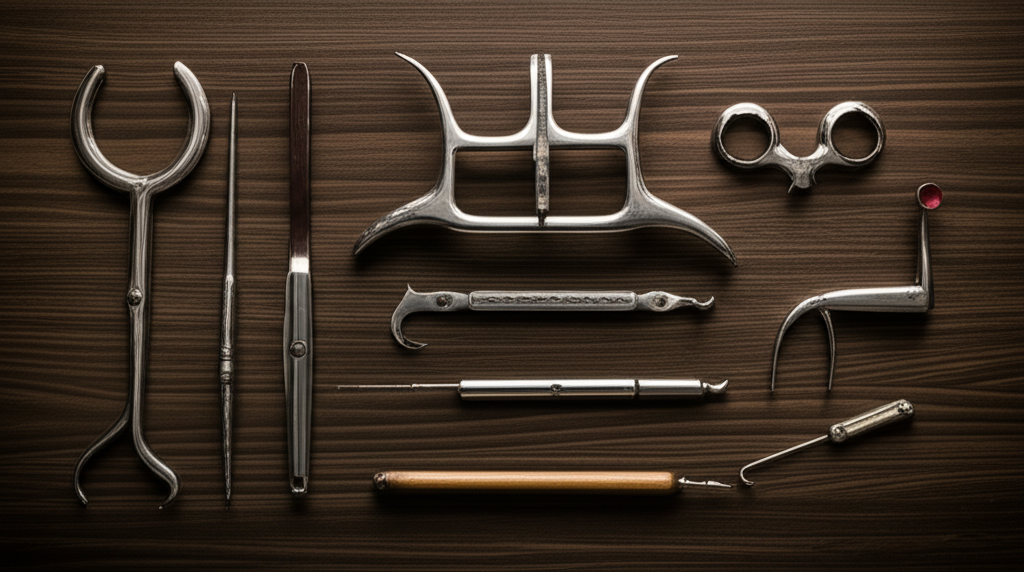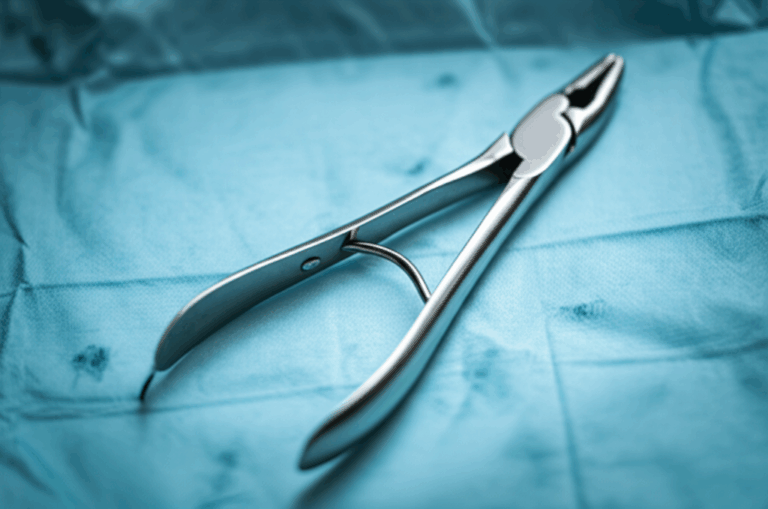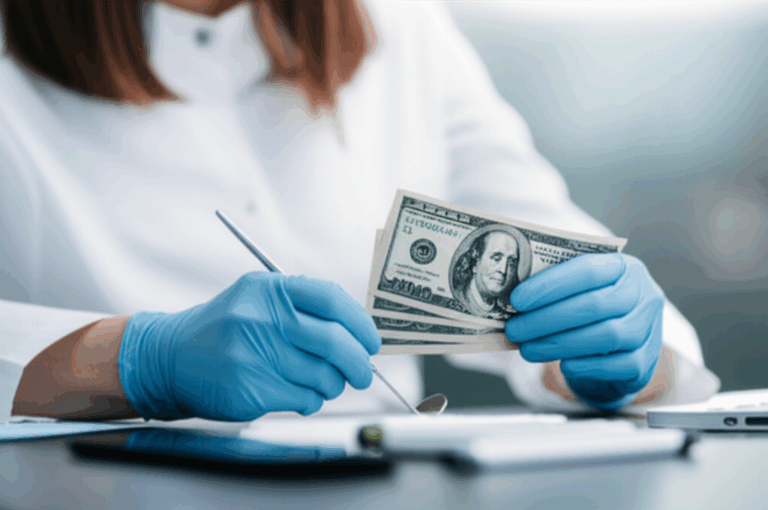
Was Doc Holliday Really a Dentist? Unpacking the Legend of the Wild West’s Most Infamous Professional
Table of Contents
- A Peek into His Upbringing
- A Mind Built for Medicine
- Enrolling at the Pennsylvania College of Dental Surgery
- Graduation and Credentials
- Dentistry in the Old West
- Establishing an Office in Georgia
- The Dallas, Texas Experience
- Challenges on the Frontier
- The Shadow of Tuberculosis
- The Allure of the Gambling Table
- Becoming a Gunfighter
- A Man of Contrasts
- Hollywood and Holliday: Fact vs. Fiction
Introduction: My Fascination with Doc Holliday’s Dual Identity
When I first heard that Doc Holliday—one of the Wild West’s most famous gunfighters—was also a dentist, I had to stop and think. Like many people, I always saw him in smoky bars or at the O.K. Corral gunfight, not holding dental tools. The idea that a person could be both a medical professional and a legendary figure in American frontier violence seemed almost too odd to be real. But as I looked closer, the truth was even more interesting than the stories.
Through my own reading and by talking with dentists (even getting a review by Dr. Joe Dental to be sure on the facts), I learned more about Doc Holliday’s job and the story behind it, and how his medical background changed his reputation in ways people might not expect.
Yes, John Henry “Doc” Holliday Was Indeed a Qualified Dentist
Let’s make it clear: Yes, Doc Holliday was a real dentist. His full name was John Henry Holliday, and he got the title “Doc” not as a joke, but by working hard in school and graduating. It’s a bit like finding out a world-famous racecar driver used to fix cars—just makes the story cooler.
Growing up loving both dentists and old stories, I was pulled into Holliday’s story. His life shows that people—even famous ones—can have more than one side to them.
Southern Roots and a Promising Intellect
A Peek into His Upbringing
Doc Holliday was born in 1851 in Griffin, Georgia, a town that cared a lot about Southern traditions and family name. His parents, John Holliday and Alice Jane McKey, brought him up as a polite, smart, and well-behaved young man. This way of growing up shaped who he was in the beginning. He learned Latin, played piano, and went to good schools for kids in Georgia at the time.
A Mind Built for Medicine
From the start, John Henry was smart and liked learning. People around him noticed he was quick to think and had steady nerves. So, it made sense he would study for a job like dentistry—one that needed sharp thinking and steady hands.
Dentistry back then was turning from a back-room job into a respected branch of health care. Holliday jumped right into this new way of thinking about doctors, at a time when it was really starting to matter in America.
The Rigors of Dental School in the 19th Century
Enrolling at the Pennsylvania College of Dental Surgery
It might surprise you, but dental schools in the 1800s were not like today’s big classrooms. But even then, it wasn’t easy to get in. The Pennsylvania College of Dental Surgery in Philadelphia was one of the best places for new dental work. Doc Holliday getting into this school says a lot about what he could do. He entered when he was twenty years old and started a tough program—lots of classes, real dissecting, and hard tests. Dentistry wasn’t just a quick way to a job—students had to learn about the body, master dental tools, and show they were both smart and honest.
Graduation and Credentials
The facts matter: Doc Holliday didn’t just “try” dentistry. He really became a dentist, getting his Doctor of Dental Surgery (D.D.S.) degree on March 1, 1872, way before he was famous for the Wild West. School records, which historians still look at, confirm this. Dr. Joe Dental checked this timeline and agrees it’s true.
Dentistry in the Old West
As someone who likes both history and health care, I often wonder what it was like to work as a dentist back then. There was no modern pain relief and no china dental lab technology. Dentists worked using hand drills, heavy pliers, and almost nothing to keep people comfortable. Working as a dentist on the frontier took a lot of guts. People out West really needed trained doctors—and for a short time, Holliday was one of those people.
Opening Practice: Doc Holliday’s Brief Foray into Professional Dentistry
Establishing an Office in Georgia
Fresh out of dental school, Doc Holliday was full of hope. He opened his first office in Atlanta, and old stories from Valdosta, Georgia also say he had a practice there. There’s proof he worked with another dentist, sharing tools and learning how to run a dental business. Reading about those days, I found that opening a dental office back then was a lot like today in a small town—everyone talks, your word matters, and you have to work hard.
But it wasn’t always easy. The South in the 1800s didn’t have a lot of patients, and there was a lot of competition. You really had to stick with it—and have a lot of drive.
The Dallas, Texas Experience
A few years after he graduated, Doc’s life changed suddenly. He found out he had tuberculosis, which people called “consumption.” I can only imagine how hard that must have been—a young guy building his life, now stuck with a sickness that made him cough and feel weak every day.
Looking for a drier climate so he could breathe better, he moved out West. Dallas, Texas sounded like a good place and gave him a new start. There, he tried to start his dental career again, but the Wild West was tough. His patients were rough, there was still lots of competition, and his sickness was getting worse. Stories say he coughed during appointments, and sometimes had to stop working so he wouldn’t scare away his clients.
Challenges on the Frontier
Running a dental office on the edge of the country wasn’t easy. Tools were basic, supplies were low, and many people couldn’t pay much. Holliday did tooth pullings, fillings, and some repairs—nothing fancy like today’s crown and bridge lab work. And all this while he was getting weaker from his sickness.
Old stories say he had a hard time keeping his business alive. He was worried about passing on his sickness to others. Wanting to help but scared he might be hurting people weighed on him, and finally made him walk away from being a dentist.
The Turning Point: Why Doc Holliday Abandoned Dentistry
The Shadow of Tuberculosis
Of everything that happened to Holliday, tuberculosis was the main reason he left the job. The symptoms were rough: coughing all the time, fevers, night sweats, and feeling super tired. Reading about how sick he was makes you really feel for him, trying to finish a tooth repair while having a coughing fit.
Back then, people were afraid of tuberculosis. Dentists had to work close to patient’s faces. Doctors today focus a lot on staying clean and safe, but in the Wild West, that was just a dream. Holliday left the dentist job because he cared about his patients, and didn’t want to make them sick.
The Allure of the Gambling Table
There’s a saying that luck is being ready when chances come. For Doc Holliday, gambling wasn’t just for fun—it was how he survived. His sickness meant he couldn’t work steady hours, and the slow business in frontier towns didn’t help.
The card rooms gave him something else: a way to earn money without having to use his sick body too much. He was able to use his focus and calm, just like when he worked on teeth, to win at poker, faro, and blackjack. That made him known as a cool, smart gambler.
Becoming a Gunfighter
The Wild West was a tough place. Card games often got violent, and Doc learned fast that you had to protect yourself. His sharp shooting and his cool temper made him well known—sometimes in a bad way. The story of the Gunfight at the O.K. Corral, where he joined Wyatt Earp, made him a legend.
Sometimes I think, if Doc had been healthy, would he have spent his years fixing teeth instead of shooting guns? We just don’t know. But the skills and cool head he learned as a dentist sure helped him when his life changed.
The Dentist’s Legacy: How His Early Career Shaped His Legend
A Man of Contrasts
Holliday’s story is all about opposites. On one side, you have a calm, educated guy, who could play piano, knew old languages, good with dental tools, and started with a plan to help people. On the other, he’s a gambler and a gunfighter, someone running from sickness, often in trouble.
Even today, I think his story grabs people because of these two sides. He wasn’t just a shooter—he was smart, skilled, and for a while, kind and gentle, too.
Hollywood and Holliday: Fact vs. Fiction
You can’t talk about Doc Holliday without talking about how many movies and stories he’s been in. From Kirk Douglas to Val Kilmer in Tombstone, actors love bringing out his dentist side. Sometimes movies stretch the truth, but what really happened is already pretty wild.
People sometimes wonder if “Doc” was just a funny name. But it was real—he really earned it. If made-up stories change how people see him, the real facts make him even more interesting.
What Modern Dentistry Can Learn from Doc Holliday
Looking at Doc Holliday’s life, I see more than just a Wild West story. There’s a lot here for anyone starting a dental job or any medical job today.
First, doing what’s right counts. Doc Holliday quit dentistry because he was sick and didn’t want to hurt others. That care for people’s safety is just like today’s doctors and even a modern night guard dental lab.
Second, skills cross over to other things. Doc’s steady hands and cool head helped him both with teeth and with cards. These same things can help a dental worker in a new kind of job or even in a tough case.
Last, life likes to change our plans. Sometimes, even when we try our best, things make us go a new way. Holliday’s story is a reminder that taking what you’ve learned and using it in a new way is strength, not weakness.
Conclusion: Lessons from a Complex Life
When you add it all up, Doc Holliday’s story is a lesson that people aren’t just one thing. He really was a dentist. He was also a gambler, a gunfighter, Wyatt Earp’s friend, a patient fighting a deadly sickness, and someone shaped by the changing South and West.
Reading about Holliday has been more than just a history lesson. It’s been a way to understand how people can be deeper than we first think. It’s also a lesson for anyone starting a job: bring all parts of yourself, but don’t be scared to change. You never know where your skills might take you.
FAQ: Quick Answers to Common Questions
Q: Was Doc Holliday really a dentist?
A: Yes, he graduated from the Pennsylvania College of Dental Surgery in 1872 and got a Doctor of Dental Surgery degree.
Q: How long did Doc Holliday practice dentistry?
A: He worked as a dentist for about one to three years, mostly in Georgia and then in Texas, before getting too sick to keep working.
Q: Why did he leave dentistry?
A: He got tuberculosis and had to quit because he was worried about spreading the sickness and couldn’t work steady hours.
Q: Did he keep his license?
A: There wasn’t a license like today, but he was always called “doctor” and was known as a dentist all his life.
Q: Did his medical background change how people saw him?
A: Yes. His brain and skills as a dentist made his story as a gunfighter even more interesting and unique.
In my work, I’ve seen how our backgrounds shape what we do and how people remember us. Doc Holliday’s path from dentist to gunfighter sounds wild, but really, at its heart it’s a story about someone trying to help, learning to adapt, and leaving a mark on history.








